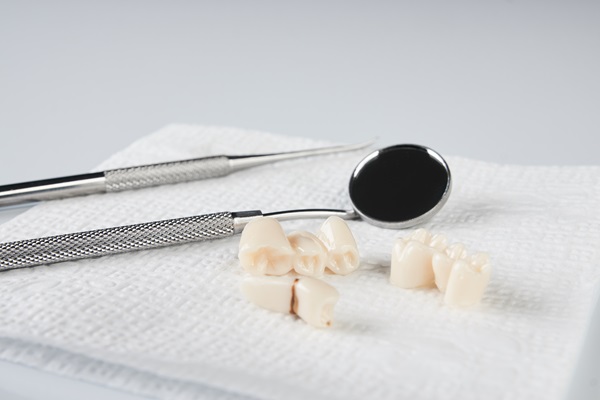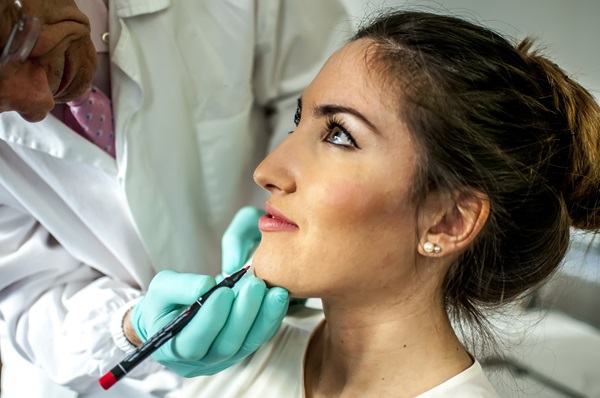Aftercare for Dental Bone Graft Procedure

For those who just had a dental bone graft procedure, it is important to follow specific instructions for care after the surgery. This will limit complications and make sure the area heals properly and quickly.
Instructions for post-op care
Manage pain and prevent infection
Patients should take pain medication within a couple of hours after the procedure, before the anesthesia wears off. If you do not want to take the prescribed meds, an over-the-counter pain reliever should be adequate. After the initial dose, continue to use the medication at regular intervals for the first two or three days. If antibiotics were prescribed, this will help prevent infection of the area. Make sure you take them until they are all gone, and keep in mind that antibiotics can interfere with the effectiveness of birth control pills.
Control bleeding and swelling
Some bleeding is normal the first day or two after the surgery. Place a tea bag or damp gauze pad over the bleeding area and bite down continuously and firmly for 20 to 30 minutes. If you experience swelling, apply an ice pack on the site of the surgery at 20-minute intervals for the first 24 to 48 hours. Eating or drinking cold items, such as ice cream, cold drinks and ice cubes, will also minimize swelling and provide comfort.
Practice good oral hygiene
While practicing oral hygiene is important, you should not floss or brush the surgical area, and you should practice very gentle brushing of the surrounding teeth. Follow these instructions until the area has healed and the dentist says it is OK to start brushing and flossing normally.
Starting the day after surgery, patients should rinse the area three times a day. Use the mouth rinse the oral surgeon recommends or use warm salt water. Avoid harsh alcohol-based mouthwashes. Do not gargle or rinse vigorously.
Follow diet restrictions
For the first three or four days after surgery, stick to softer foods such as jello, yogurt, pudding, mashed potatoes and lukewarm soup. Drink plenty of fluids, but do not drink out of a straw. Avoid acidic food, spicy food and hot liquids. Patients can return to eating normally once they are able to endure solid foods, and this time frame will vary for each individual.
Refrain from smoking
Smoking can be detrimental to the healing process and increase bleeding. Avoid smoking for a minimum of 21 days after the surgery and even longer if possible.
Restrict activity
For the first few days after the surgery, minimize physical activity. Moving too much may increase the amount of bleeding.
Know when to contact the oral surgeon
It is normal to experience swelling, discomfort and some bruising after a bone graft, but you should contact the office if you experience certain symptoms. These include:
- Marked fever
- Pain that is uncontrollable
- Bleeding that will not stop
- Allergic reactions to medication
- Warm swelling of the area days after the surgery
Conclusion
A bone graft can help to augment bone for a variety of dental procedures. To ensure proper healing, patients should follow specific instructions and make sure not to aggravate the area.
Request an appointment here: https://spectrumsurgical.net or call Facial Spectrum at (816) 524-4334 for an appointment in our Lee's Summit office.
Check out what others are saying about our dental services on Yelp: Will I Need a Bone Graft for Dental Implants.
Recent Posts
Wisdom teeth removal is necessary for patients whose wisdom teeth are causing problems. Crowding, misalignment, and pain are the common issues that these teeth cause. The dentist will recommend extracting them to prevent more problems from developing. Here are the procedural steps, as well as aftercare tips, that you must consider for wisdom teeth removal.The…
While receiving a referral to a jaw surgeon can raise many questions, our jaw surgeon and team are here to help. We have the professional training and knowledge to ensure patients receive the proper care they need. Our treatment can help address conditions affecting the mouth, jaw, head, neck, and face. We can help determine…
Infections after dental procedures occur frequently and that is primarily due to a lack of education on how to avoid it, however, with the help of an oral surgeon, infections can be avoided in a few ways. Oral surgeons are dental professionals who focus on invasive procedures that are necessary in order to treat or…
Your facial surgeon will prepare you well before your jaw surgery. This invasive procedure can improve your appearance and relieve your pain. It can also enhance your dental health. Here are the important details that your facial surgeon would want you to know before your jaw surgery.The upper and lower jaws are important in completing…


